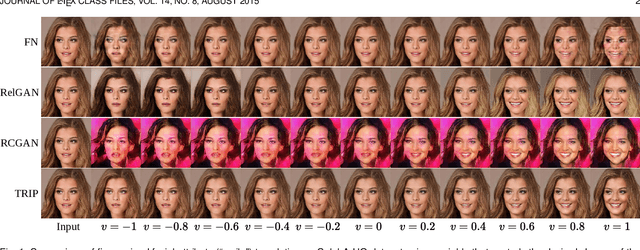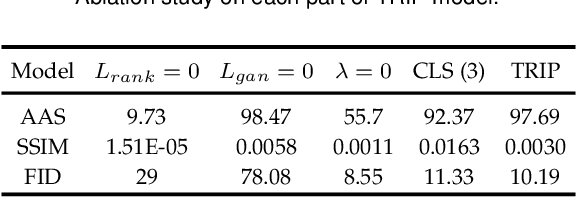TRIP: Refining Image-to-Image Translation via Rival Preferences
Paper and Code
Nov 26, 2021



Relative attribute (RA), referring to the preference over two images on the strength of a specific attribute, can enable fine-grained image-to-image translation due to its rich semantic information. Existing work based on RAs however failed to reconcile the goal for fine-grained translation and the goal for high-quality generation. We propose a new model TRIP to coordinate these two goals for high-quality fine-grained translation. In particular, we simultaneously train two modules: a generator that translates an input image to the desired image with smooth subtle changes with respect to the interested attributes; and a ranker that ranks rival preferences consisting of the input image and the desired image. Rival preferences refer to the adversarial ranking process: (1) the ranker thinks no difference between the desired image and the input image in terms of the desired attributes; (2) the generator fools the ranker to believe that the desired image changes the attributes over the input image as desired. RAs over pairs of real images are introduced to guide the ranker to rank image pairs regarding the interested attributes only. With an effective ranker, the generator would "win" the adversarial game by producing high-quality images that present desired changes over the attributes compared to the input image. The experiments on two face image datasets and one shoe image dataset demonstrate that our TRIP achieves state-of-art results in generating high-fidelity images which exhibit smooth changes over the interested attributes.
 Add to Chrome
Add to Chrome Add to Firefox
Add to Firefox Add to Edge
Add to Edge